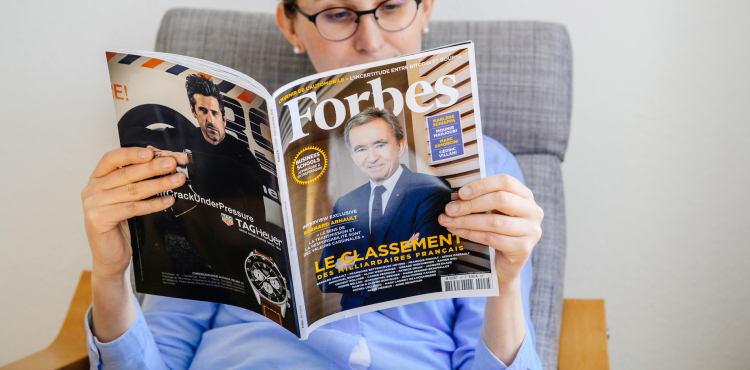The Era of Conglomerates: LVMH, Richemont, and Kering

In December 2019, LVMH acquired Tiffany & Co. for 16.2 million USD. This was a huge deal in the fashion, luxury, and jewelry industries. Not only due to the high buying price, but most importantly, this acquirement solidified the fact that we are now in a business era where numbers, business deals, and high profile backers, are becoming more important than the creative process. The unfortunate closing of Zac Posen's namesake brand is an example of when business trumps creativity. In an interview with American Vogue, Posen states "I've been personally trying to find the right partner for some time, but time ran out, and the difficult climate out there...it's not an easy time in our industry".
Since this deal, LVMH appears untouchable and now journalists are wondering what Richemont's next move will be.
Many of us have likely heard the name of LVMH, but what about Kering and Richemont? These three companies have high stakes, not only in the fashion industry, but additionally in luxury, food, and accessories as well. What hold do they have on our favorite brands? Here is a breakdown of LVMH, Richemont, and Kering.
LVMH
Quick Facts:
Net Worth: €128.550 billion as of 2018
CEO: Bernard Arnault
Notable Brands: Louis Vuitton, Moët Hennessy, Kenzo, Dior, Chandon, FENTY, Fenty Beauty, Sephora, Make Up For Ever, and Le Parisien.
LVMH, otherwise known as Moët Hennessy-Louis Vuitton, is a French luxury conglomerate group that began in 1987 with the merger of its namesake. Their CEO and Chairman, Bernard Arnault, has held his position since 1989. According to the LVMH website, the conglomerate owns or has a share, in helping operate 75 houses in six different sectors. These sectors are wines & spirits, fashion & leather goods, perfumes & cosmetics, watches & jewelry, selective retailing, and other businesses. LVMH is currently the leading luxury group in the world, with Richemont and Kering not too far behind in terms of numbers. However, in terms of popularity, each company has their own unique powerhouse brands.
Cartier Store in Moscow, Russia, Image Credit: Shutterstock/1619721646Richemont
Quick Facts:
Net Worth: €20.160 billion as of 2017
CEO: Jérôme Lambert
Notable Brands: Cartier, Chloé, Azzedine Alaïa, Van Cleef & Arpels, Piaget, Montblac, Dunhill, Buccellati, Baume & Mercier, and Officine Panerai.
Formally known as Compagnie Financière Richemont SA, Richemont is a Swiss luxury goods holding company. Founded in 1988 by Johann Rupart, Richemont had similar beginnings to LVMH. They started with stakes in two companies, Cartier Monde SA and Rothmans Internation, with the intention of Richemont becoming a spin-off to another luxury group, Rembrandt Group Limited of South Africa.
According to their website, "each Maison is run as an independent entity, ensuring that each Maison remains unique". However, the amount of influence that the overall company has over the individual Maisons is up to debate.
Although the CEO and corporate heads are keeping mum on their next moves, you can confidently assume they are planning to counteract the looming status of their biggest competitor.
Kering
Quick Facts:
Net Worth: €21.367 billion as of 2018
CEO: Francois-Henri Pinault
Notable Brands: Saint Laurent, Balenciaga, Alexander McQueen, Gucci, Pomellato, Boucheron, Puma, Cartier eyewear, Bottega Veneta, Oeelin.
Based in Paris, Kering is an international luxury group that manages the development of Houses such as Gucci and Alexander McQueen. Even though Kering holds well known luxury Houses, they are not talked about in the same manner as Richemont and LVMH. It seems as though their houses are more discussed than the name backing them.
The company is the oldest out of the three, with it being founded in 1963 by François Pinault. Interestingly, Kering did not think of itself as a "pure player" in the luxury business industry until 2018, 5 years after adopting "a new visual identity", as well as changing their name from PPR to Kering. The company has three main sectors: couture & leather goods, watches & jewelry, and Kering Eyewear.
In recent years, Kering became the first out of the three companies to take a public stance for sustainability. As stated on their website, "luxury and sustainability are one and the same". In 2019, the company's CEO presented the Fashion Pact at the G7 Summit. Kering, along with 32 other fashion and textile companies, signed a pact that "made a pledge to work towards shared and concrete goals in three areas: Climate, Biodiversity, and Oceans". While this pact is non-binding, it was a major step in a time where companies prefer greenwashing over finding solutions.
In a world where sustainability is the new black, the next big thing is always looming and creativity seems to have taken a back seat to business tactics. Time can only tell if these monster companies will be able to grow or if they will fail to rise to the test.









